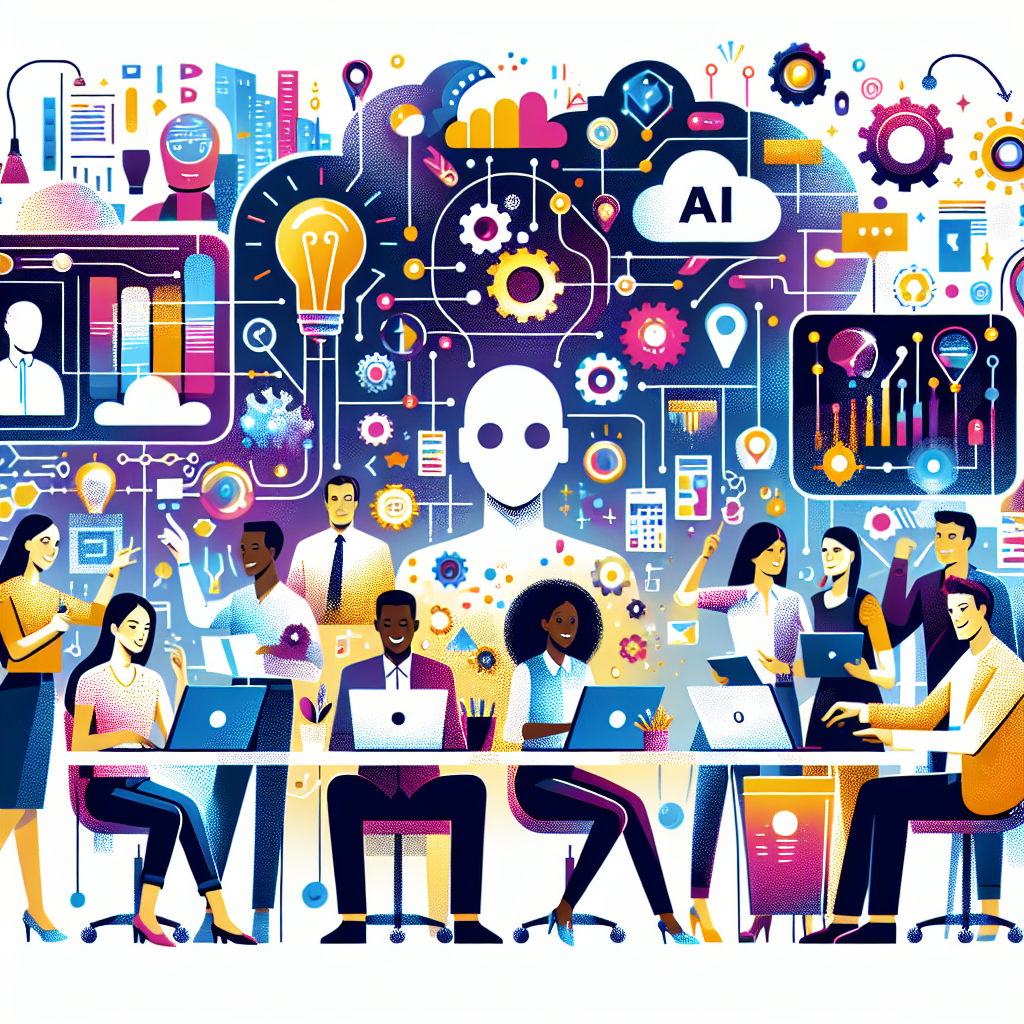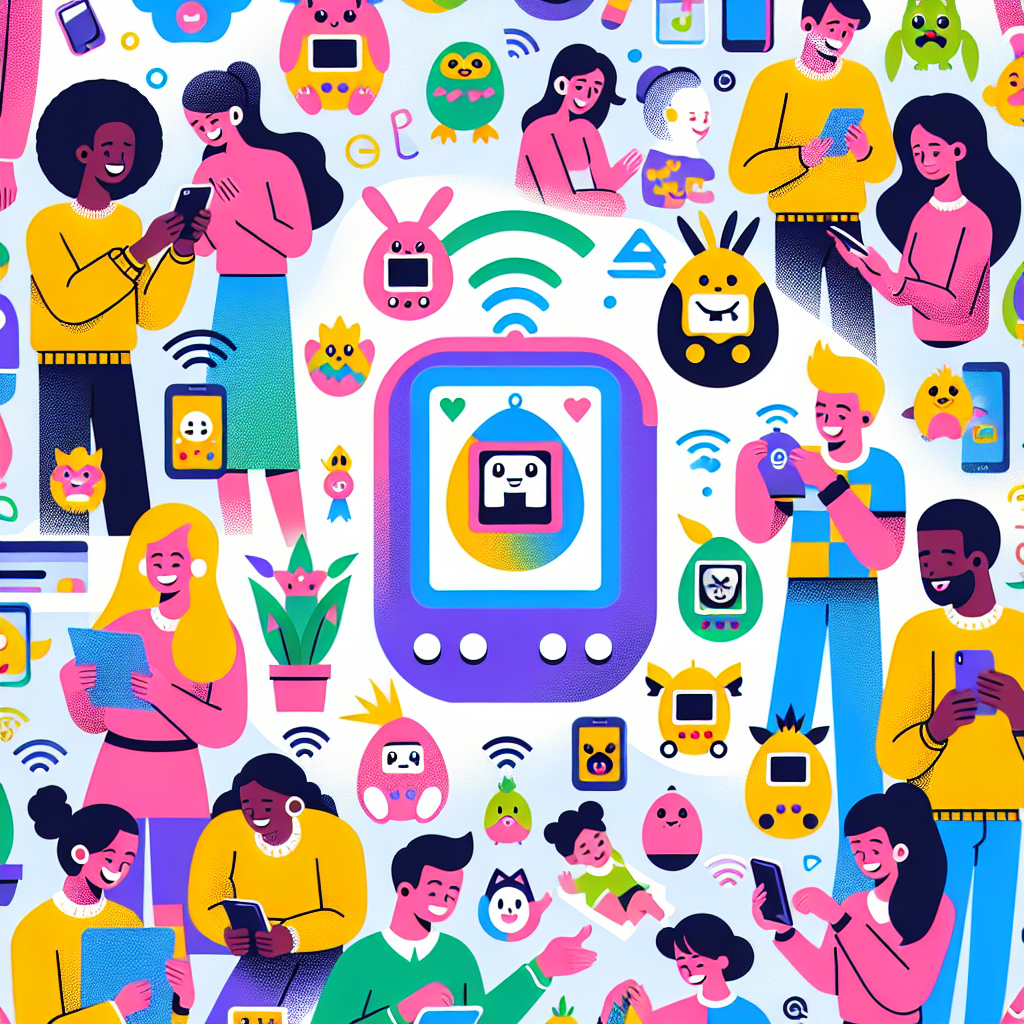AI washing is a term used to describe when companies exaggerate or mislead people about how they use artificial intelligence (AI). This issue became a hot topic when Amazon was criticized for its “Just Walk Out” technology in grocery stores. While this system is meant to let customers shop without going through a traditional checkout, it turned out that many transactions were still being checked by workers in India. Amazon explained that these workers were not checking every single transaction but were overseeing the system, showing that the real use of AI can be complicated.
The idea of AI washing is similar to “greenwashing,” where companies falsely claim to be eco-friendly. This term highlights a growing worry that businesses might be overstating their AI abilities to seem more advanced and competitive. AI usually refers to computer systems that can learn and solve problems, but the recent buzz has been around generative AI, which can create new content like text, music, or images. Because of this, more companies are claiming to use AI, even if their actual technology isn’t as impressive as they say.
Research shows that AI washing isn’t a new problem. A study from 2019 found that 40% of companies calling themselves “AI start-ups” weren’t using AI at all. Now, many companies are adding basic AI features, like chatbots, to their existing software without really developing full AI systems. This trend is driven by the competitive nature of tech start-ups, where mentioning AI in business pitches has become almost necessary to attract investors, no matter how much AI is actually involved in their products.
The confusion around what AI really means makes AI washing even worse. Different definitions of AI create uncertainty, making it hard for investors and consumers to tell which companies are truly using advanced AI technology. This can lead to businesses spending too much on technology that doesn’t fit their needs and can also damage trust in companies that are genuinely innovating in AI. In the U.S., regulatory bodies are starting to take action against misleading AI claims, which shows a move towards more accountability in this area.
Original news source: What is ‘AI washing’ and why is it a problem? (BBC)
🎧 Listen:
Slow
Normal
Fast
📖 Vocabulary:
| 1 | exaggerate | To make something seem bigger or more important than it really is |
| 2 | misleading | Giving the wrong idea or impression |
| 3 | transactions | Acts of buying or selling something |
| 4 | overseeing | Watching and checking something to make sure it’s done correctly |
| 5 | overstating | Making something seem more important or better than it really is |
| 6 | competitive | Wanting to be more successful than others |
| 7 | generative | Able to produce or create something new |
| 8 | impressive | Causing admiration or respect |
| 9 | trend | A general direction in which something is developing or changing |
| 10 | pitches | Presentations or talks to persuade someone to buy or invest in something |
| 11 | uncertainty | Not being sure or having doubts |
| 12 | investors | People who put money into a business to make more money |
| 13 | regulatory | Related to making rules or laws |
| 14 | accountability | Being responsible for your actions and decisions |
| 15 | innovating | Creating new ideas or methods |
Group or Classroom Activities
Warm-up Activities:
– CHARADES
Instructions: Divide the class into small groups. Each group will take turns acting out terms related to AI washing (e.g., “artificial intelligence,” “greenwashing,” “chatbots”) without speaking, while the other groups guess the terms. This will help students familiarize themselves with vocabulary in a fun way.
– OPINION POLL
Instructions: Prepare a list of statements related to AI washing (e.g., “Companies should be held accountable for misleading claims about AI”). Ask students to move to different sides of the room depending on whether they agree, disagree, or are neutral about each statement. After each statement, facilitate a brief discussion about their opinions.
– MIND MAP
Instructions: On a large piece of paper or whiteboard, write “AI Washing” in the center. Ask students to brainstorm and add related terms, concepts, and real-world examples. This activity encourages collaborative thinking and helps students visually organize their understanding of the topic.
– HEADLINE CREATION
Instructions: Divide students into pairs and ask them to create catchy headlines for an article about AI washing. Encourage them to think creatively while summarizing the essence of the issue. Afterward, pairs can share their headlines with the class for feedback.
– SPEED SUMMARIZING
Instructions: Have students pair up and take turns summarizing the article in one minute to each other. After a minute, they switch roles. This activity allows them to practice concise speaking and listening skills, ensuring they grasp the main ideas of the article.
🤔 Comprehension Questions:
1. What does the term “AI washing” refer to in the context of companies and artificial intelligence?
2. How did Amazon’s “Just Walk Out” technology contribute to the discussion about AI washing?
3. In what way is AI washing similar to the concept of “greenwashing”?
4. What is generative AI, and why has it become a popular topic among companies?
5. According to research from 2019, what percentage of companies claiming to be “AI start-ups” were not actually using AI?
6. Why do many tech start-ups feel the need to mention AI in their business pitches?
7. How does the confusion around the definition of AI make the issue of AI washing worse for consumers and investors?
8. What actions are regulatory bodies in the U.S. starting to take regarding misleading AI claims?
Go to answers ⇩
🎧✍️ Listen and Fill in the Gaps:
AI washing is a term used to describe when companies exaggerate or mislead people about how they use (1)______ intelligence (AI). This issue became a hot topic when Amazon was criticized for its “Just Walk Out” technology in grocery (2)______. While this system is meant to let customers shop without going through a traditional checkout, it turned out that many transactions were still being checked by workers in India. Amazon (3)______ that these workers were not (4)______ every single transaction but were overseeing the system, showing that the real use of AI can be complicated.
The idea of AI washing is similar to “greenwashing,” where companies falsely claim to be eco-friendly. This term highlights a growing worry that (5)______ might be overstating their AI abilities to seem more advanced and competitive. AI usually (6)______ to (7)______ systems that can learn and solve problems, but the recent buzz has been around generative AI, which can create new content like text, music, or (8)______. Because of this, more companies are claiming to use AI, even if their actual technology isn’t as impressive as they say.
Research shows that AI washing isn’t a new problem. A study from 2019 found that 40% of (9)______ calling themselves “AI start-ups” weren’t using AI at all. Now, many companies are adding basic AI (10)______, like chatbots, to their existing (11)______ without really developing full AI systems. This trend is driven by the competitive nature of tech start-ups, where mentioning AI in (12)______ pitches has become almost necessary to attract investors, no matter how much AI is actually involved in their products.
The (13)______ around what AI really means makes AI washing even worse. Different definitions of AI create uncertainty, making it hard for investors and consumers to tell which companies are truly using advanced AI technology. This can lead to businesses spending too much on technology that doesn’t fit their (14)______ and can also damage trust in companies that are genuinely innovating in AI. In the U.S., regulatory (15)______ are (16)______ to take action against misleading AI claims, which shows a move towards more accountability in this area.
Go to answers ⇩
💬 Discussion Questions:
Students can ask a partner these questions, or discuss them as a group.
1. What is your opinion on companies that exaggerate their use of technology?
2. How would you feel if you discovered that a product you bought was not as advanced as advertised?
3. Do you think it’s important for companies to be honest about their technology? Why or why not?
4. Have you ever felt misled by a company’s advertisement? What happened?
5. What do you think are the consequences of AI washing for consumers?
6. How would you define artificial intelligence in your own words?
7. Do you like the idea of using AI in everyday products? Why or why not?
8. How do you feel about the use of chatbots in customer service? Do you find them helpful?
9. Do you think companies should be punished for misleading claims about their technology? Why?
10. What is a technology that you think is overhyped? Why do you feel this way?
11. How would you react if a company you trusted was found to be using AI washing?
12. Do you think that the term “AI” will continue to be popular in the future? Why or why not?
13. Have you ever used a product that claimed to use AI? What was your experience?
14. How important is it for you to know how a product works before you buy it?
15. Do you think there should be stricter regulations on how companies advertise their technology? Why or why not?
Individual Activities
📖💭 Vocabulary Meanings:
Match each word to its meaning.
Words:
1. exaggerate
2. misleading
3. transactions
4. overseeing
5. overstating
6. competitive
7. generative
8. impressive
9. trend
10. pitches
11. uncertainty
12. investors
13. regulatory
14. accountability
15. innovating
Meanings:
(A) Causing admiration or respect
(B) A general direction in which something is developing or changing
(C) Making something seem more important or better than it really is
(D) Watching and checking something to make sure it’s done correctly
(E) Giving the wrong idea or impression
(F) People who put money into a business to make more money
(G) To make something seem bigger or more important than it really is
(H) Creating new ideas or methods
(I) Wanting to be more successful than others
(J) Not being sure or having doubts
(K) Able to produce or create something new
(L) Acts of buying or selling something
(M) Presentations or talks to persuade someone to buy or invest in something
(N) Related to making rules or laws
(O) Being responsible for your actions and decisions
Go to answers ⇩
🔡 Multiple Choice Questions:
1. What does the term “AI washing” refer to?
(a) A type of computer virus
(b) A method of cleaning data
(c) A new AI programming language
(d) Exaggerating or misleading about the use of artificial intelligence
2. Which company faced criticism for its “Just Walk Out” technology?
(a) Google
(b) Amazon
(c) Microsoft
(d) Apple
3. What is a common feature that companies are adding to their existing software to claim they use AI?
(a) Virtual reality
(b) Chatbots
(c) Blockchain
(d) Cloud storage
4. What percentage of companies identified as “AI start-ups” in a 2019 study were not actually using AI?
(a) 25%
(b) 60%
(c) 40%
(d) 10%
5. What is generative AI known for?
(a) Analyzing data trends
(b) Automating customer service
(c) Storing large amounts of data
(d) Creating new content like text, music, or images
6. Why is AI washing a growing concern for businesses?
(a) Companies might be overstating their AI abilities
(b) It helps companies save money
(c) It encourages innovation in technology
(d) It simplifies the use of AI
7. What is one potential consequence of AI washing for investors and consumers?
(a) Difficulty in identifying companies using true AI technology
(b) Increased investment in AI
(c) Better understanding of AI capabilities
(d) More trust in tech companies
8. What action are regulatory bodies in the U.S. starting to take regarding AI claims?
(a) Promoting AI technology
(b) Funding AI research
(c) Taking action against misleading claims
(d) Creating new AI standards
Go to answers ⇩
🕵️ True or False Questions:
1. The term AI washing is analogous to “greenwashing,” where companies inaccurately claim to be environmentally friendly.
2. Regulatory bodies in the U.S. are yet to take action against deceptive claims about AI, indicating a lack of push for more accountability.
3. Amazon drew praise for its “Just Walk Out” technology, which was designed to allow customers to shop without traditional checkouts.
4. Many businesses are overstating their AI capabilities to appear more advanced and attract competition.
5. Despite the technology, some transactions were still being monitored by workers in India, showing that the use of AI can be more complex than it seems.
6. Companies often add simple AI features, like chatbots, to existing software without developing true AI systems.
7. AI washing refers to companies exaggerating how they use artificial intelligence to make themselves look better.
8. A study from 2019 revealed that only 60% of companies branding themselves as “AI start-ups” were utilizing AI.
Go to answers ⇩
📝 Write a Summary:
Write a summary of this news article in two sentences.
Check your writing now with the best free AI for English writing!
Writing Questions:
Answer the following questions. Write as much as you can for each answer.
Check your answers with our free English writing assistant!
1. What does the term “AI washing” mean, and why is it a concern for consumers?
2. How did Amazon’s “Just Walk Out” technology contribute to the discussion about AI washing?
3. What is the difference between AI washing and greenwashing?
4. Why do many companies feel the need to claim they use AI, even if they don’t?
5. What actions are being taken in the U.S. to address misleading claims about AI?
✅ Answers
🤔✅ Comprehension Question Answers:
1. What does the term “AI washing” refer to in the context of companies and artificial intelligence?
AI washing refers to when companies exaggerate or mislead people about how they use artificial intelligence, making their technology seem more advanced than it really is.
2. How did Amazon’s “Just Walk Out” technology contribute to the discussion about AI washing?
Amazon’s “Just Walk Out” technology was criticized because it was revealed that many transactions were still being checked by workers in India, showing that the use of AI in the system was more complicated than initially presented.
3. In what way is AI washing similar to the concept of “greenwashing”?
AI washing is similar to greenwashing because both involve companies making false claims to appear more advanced or eco-friendly than they actually are, misleading consumers.
4. What is generative AI, and why has it become a popular topic among companies?
Generative AI is a type of artificial intelligence that can create new content like text, music, or images. It has become popular because many companies want to be seen as innovative and are claiming to use it to attract attention.
5. According to research from 2019, what percentage of companies claiming to be “AI start-ups” were not actually using AI?
The research from 2019 found that 40% of companies calling themselves “AI start-ups” weren’t using AI at all.
6. Why do many tech start-ups feel the need to mention AI in their business pitches?
Many tech start-ups mention AI in their pitches because it has become almost necessary to attract investors, even if their products don’t actually involve advanced AI technology.
7. How does the confusion around the definition of AI make the issue of AI washing worse for consumers and investors?
The confusion around the definition of AI creates uncertainty, making it hard for consumers and investors to identify which companies are genuinely using advanced AI, leading to potential misinvestments and a lack of trust.
8. What actions are regulatory bodies in the U.S. starting to take regarding misleading AI claims?
Regulatory bodies in the U.S. are starting to take action against misleading AI claims, indicating a move towards more accountability in how companies represent their use of artificial intelligence.
Go back to questions ⇧
🎧✍️✅ Listen and Fill in the Gaps Answers:
(1) artificial
(2) stores
(3) explained
(4) checking
(5) businesses
(6) refers
(7) computer
(8) images
(9) companies
(10) features
(11) software
(12) business
(13) confusion
(14) needs
(15) bodies
(16) starting
Go back to questions ⇧
📖💭✅ Vocabulary Meanings Answers:
1. exaggerate
Answer: (G) To make something seem bigger or more important than it really is
2. misleading
Answer: (E) Giving the wrong idea or impression
3. transactions
Answer: (L) Acts of buying or selling something
4. overseeing
Answer: (D) Watching and checking something to make sure it’s done correctly
5. overstating
Answer: (C) Making something seem more important or better than it really is
6. competitive
Answer: (I) Wanting to be more successful than others
7. generative
Answer: (K) Able to produce or create something new
8. impressive
Answer: (A) Causing admiration or respect
9. trend
Answer: (B) A general direction in which something is developing or changing
10. pitches
Answer: (M) Presentations or talks to persuade someone to buy or invest in something
11. uncertainty
Answer: (J) Not being sure or having doubts
12. investors
Answer: (F) People who put money into a business to make more money
13. regulatory
Answer: (N) Related to making rules or laws
14. accountability
Answer: (O) Being responsible for your actions and decisions
15. innovating
Answer: (H) Creating new ideas or methods
Go back to questions ⇧
🔡✅ Multiple Choice Answers:
1. What does the term “AI washing” refer to?
Answer: (d) Exaggerating or misleading about the use of artificial intelligence
2. Which company faced criticism for its “Just Walk Out” technology?
Answer: (b) Amazon
3. What is a common feature that companies are adding to their existing software to claim they use AI?
Answer: (b) Chatbots
4. What percentage of companies identified as “AI start-ups” in a 2019 study were not actually using AI?
Answer: (c) 40%
5. What is generative AI known for?
Answer: (d) Creating new content like text, music, or images
6. Why is AI washing a growing concern for businesses?
Answer: (a) Companies might be overstating their AI abilities
7. What is one potential consequence of AI washing for investors and consumers?
Answer: (a) Difficulty in identifying companies using true AI technology
8. What action are regulatory bodies in the U.S. starting to take regarding AI claims?
Answer: (c) Taking action against misleading claims
Go back to questions ⇧
🕵️✅ True or False Answers:
1. The term AI washing is analogous to “greenwashing,” where companies inaccurately claim to be environmentally friendly. (Answer: False)
2. Regulatory bodies in the U.S. are yet to take action against deceptive claims about AI, indicating a lack of push for more accountability. (Answer: False)
3. Amazon drew praise for its “Just Walk Out” technology, which was designed to allow customers to shop without traditional checkouts. (Answer: False)
4. Many businesses are overstating their AI capabilities to appear more advanced and attract competition. (Answer: True)
5. Despite the technology, some transactions were still being monitored by workers in India, showing that the use of AI can be more complex than it seems. (Answer: True)
6. Companies often add simple AI features, like chatbots, to existing software without developing true AI systems. (Answer: True)
7. AI washing refers to companies exaggerating how they use artificial intelligence to make themselves look better. (Answer: True)
8. A study from 2019 revealed that only 60% of companies branding themselves as “AI start-ups” were utilizing AI. (Answer: False)
Go back to questions ⇧















